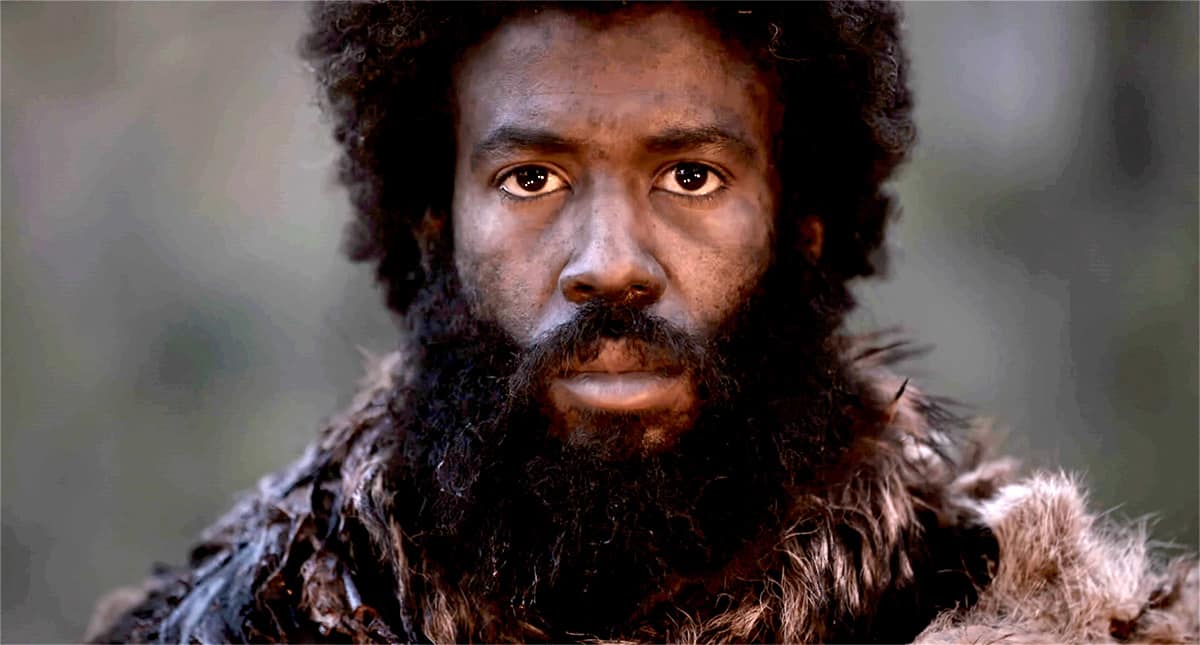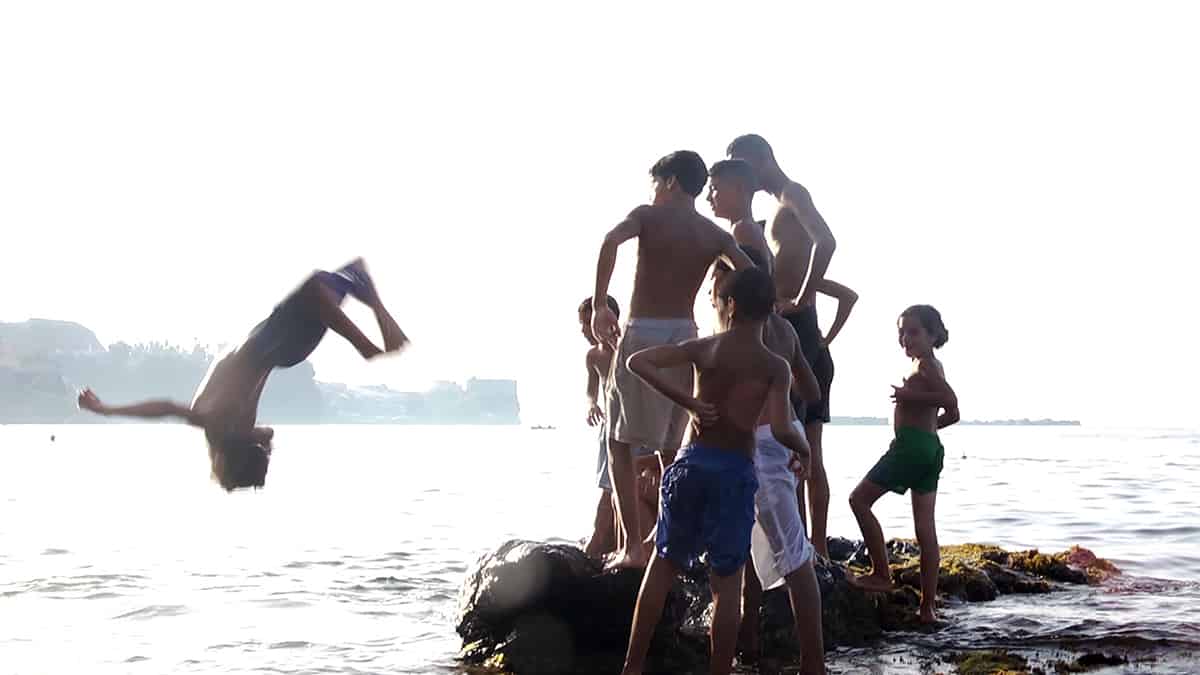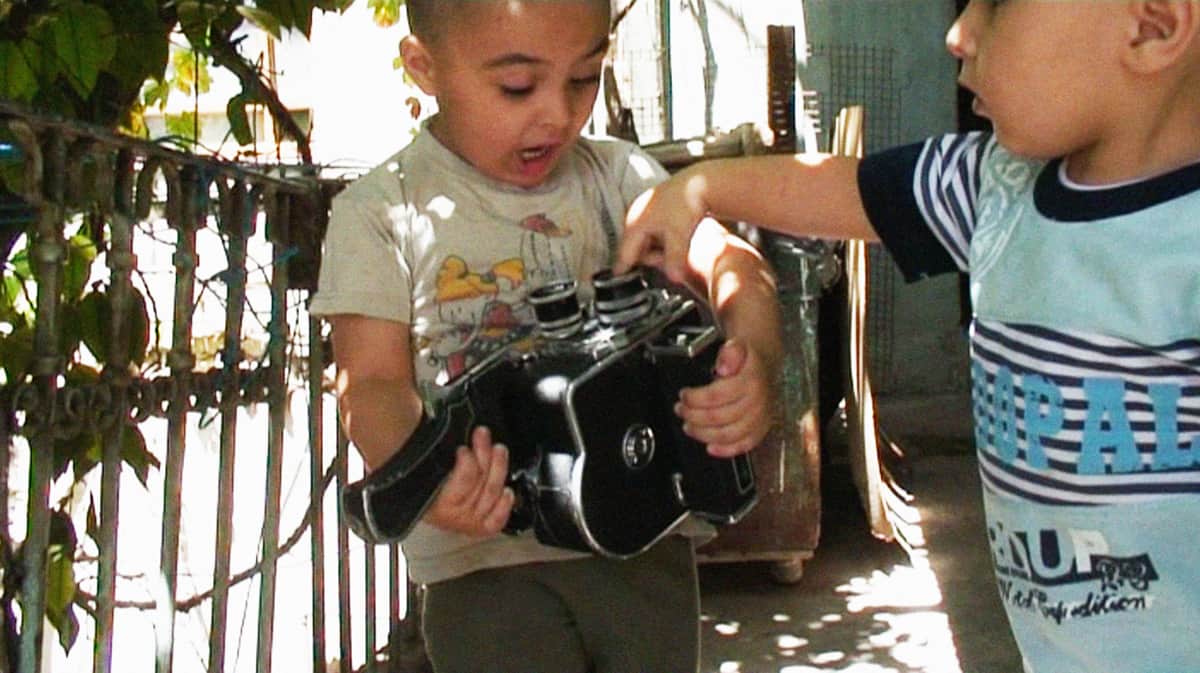Shubbak, London’s largest biennial festival of contemporary Arab culture, returns for its fourth edition next month, showcasing a diverse programme of art, music, theatre, film, literature, dance and spoken word from across the Middle East.
The festival includes over 150 artists originating from 14 Arab countries at more than 80 events over 16 days at London’s top arts venues, including the Barbican, Sadler’s Wells, Southbank Centre, Tate Modern, Serpentine Galleries, and the British Museum. Central to Shubbak’s pledge to offer ‘a window on to contemporary Arab culture’ is the film programme, this year curated by BAFTA-nominated producer Elhum Shakerifar.
“I think film is quite uniquely placed to offer that window, purely because film in particular seems to define the way we understand the region,” she says.
“The Arab world comes to the fore when it comes to conflict – Israel, Palestine, and now Syria – the image is one of a very political place, but that’s not really qualified by a personal perspective.
“I’m keen to challenge that image through voices that go a little bit deeper than that.”
The result is ‘Reframing Narratives’, an exploration of artistic responses to crises from a broad range of filmmakers from across the Middle East.
From a group of children’s reenactment of Algeria’s War of Independence to a documentary following a Baghdad-born film director’s return home after 10 years in exile, the films present perspectives rarely encountered in Western cinemas.
“It’s almost like a provocation of the surface level of the Arab world, and an attempt to encourage more varied representation and debate about responsibility,” Elhum says.
“I hope audiences walk away with an image of the Middle East created by someone that is close to the reality, rather than themedia, the stories we tell that affect us the most.”
Shubbak runs from 1-16 July, with all films screened at the Barbican Cinema, Silk Street EC2Y 8DS. Visit shubbak.co.uk for the full programme.
Elhum’s top four films of Shubbak
Imagined Futures Shorts
Shorts from the region’s most exciting new voices present a rich mix of sci-fi, animation and drama spliced with humour, charm and prescience. Mare Nostrum (lead image) captures a Syrian parent’s choice to save his daughter, while Nation Estate is multi-disciplinary artist Larissa Sansour’s dystopian, humorous and vertical solution to Palestinian statehood: one colossal skyscraper housing the entire Palestinian population, now finally living the high life. And Mounia Akl’s Submarine, which premiered at the Cannes Film Festival in 2016, follows wild child Hala as she stubbornly refuses to evacuate her derelict house during the Lebanese garbage crisis.
“For someone who wants to discover something of the region, the shorts programme is a great place to start,” Elhum says. “Not only is it a reflection of our overall aim to bring together voices from across the region, but it’s also a unique, often humorous look at what the future might hold from a variety of personal perspectives. “Take Submarine; there’s a real sense of nostalgia for home, it’s a beautifully shot, beautifully told short film, and there’s something so fantastic about [Hala’s] defiance.”
Screening plus Q&A with Larissa Sansour
4 July, 6.30pm

Shubbak will be the UK premiere for this powerful film from Tunisian director Ala Eddine Slim following rave reviews at the Venice Film Festival last year. The Last of Us looks at the question of borders and contemporary solitude through the story of ‘N’, an anonymous sub-Saharan man on a journey to Europe. The film is strikingly shot, following N through an enchanted – perhaps imaginary – territory as a reflection on contemporary migration.
“To me, it’s one of the boldest takes on the current situation in the Middle East,” Elhum says. “It’s a reflection on ideas of order, what ‘belonging’ means, and human loneliness. “It’s also very striking visually, and the storytelling is very unique in that there’s very little dialogue.”
Screening plus Q&A with Ala Eddine Slim
6 July, 8.30pm
£10.80-£13.50

The multi award-winning story of a group of children “playing” war by reenacting Algeria’s War of Independence. Reduced to a diet of ‘bloody beans’, they loot a French Army base and abduct a soldier.
Director Narimane Mari captures the children’s unreal understanding of historical fact and play with a hallucinatory narrative combined with an electro soundtrack by Zombie Zombie.
“Bloody Beans is very unusual – a very radical film – that questions the ideas of power and power dynamics. It’s kind of a Lord of the Flies meets French new wave.”
Screening plus Q&A with Narimane Mari
8 July, 6.30pm

Syrian filmmakers in the 2000s began to push for direct language, rather than the metaphorical language of their predecessors. Art historian and Syrian film specialist Charlotte Bank presents a series of short films that have pushed and tested the boundaries of what can be said in an authoritarian regime. Reem Ali’s Foam (2008) demonstrates how young filmmakers began striving for a greater outspokenness in their works, while Ammar Al-Beik’s La Dolce Siria (2015) illustrates a growing reliance on YouTube videos and found footage employed since the beginning of the Syrian uprising in 2011.
“Lots of people think that filmmakers didn’t start speaking out until after [the Syrian uprising] but this series looks at films that were made before the revolution as well as after, and you can see how the language was already shifting back in the 2000s.”
Screening plus screentalk with Charlotte Bank
9 July, 2pm







